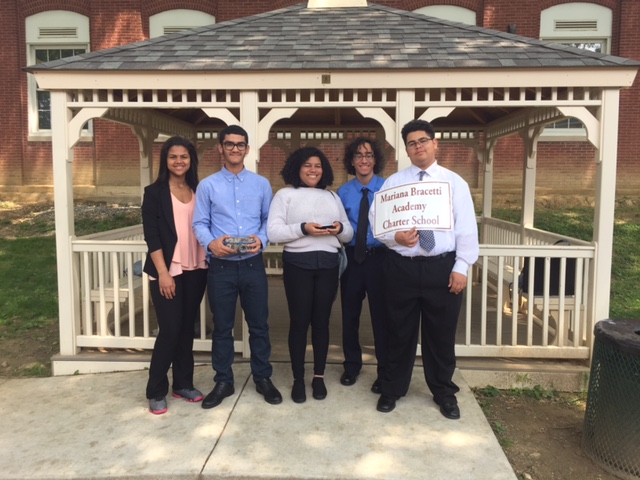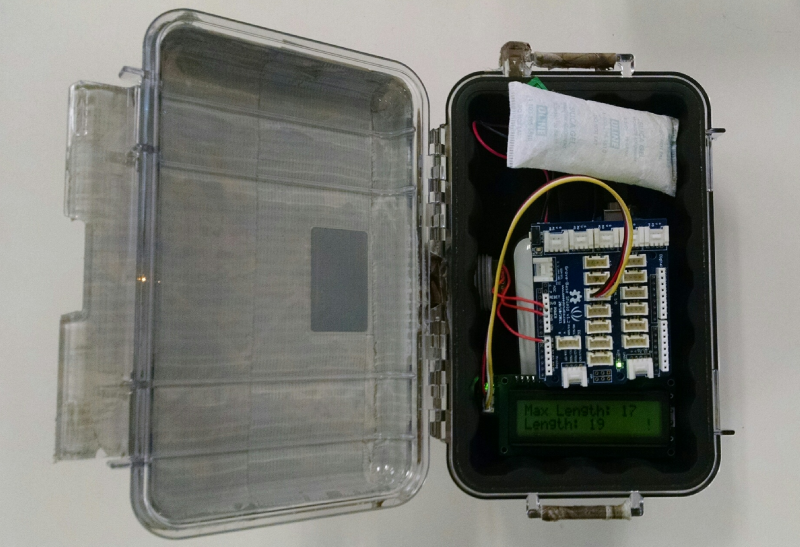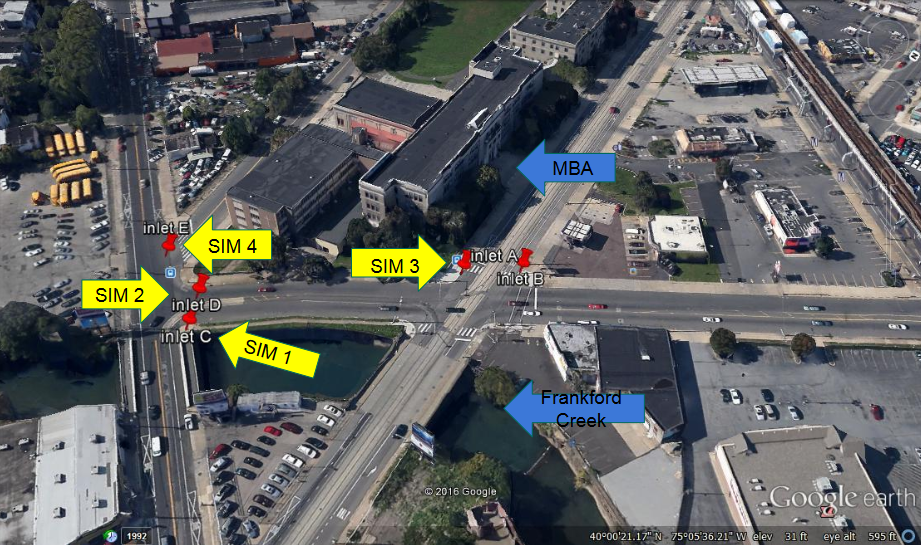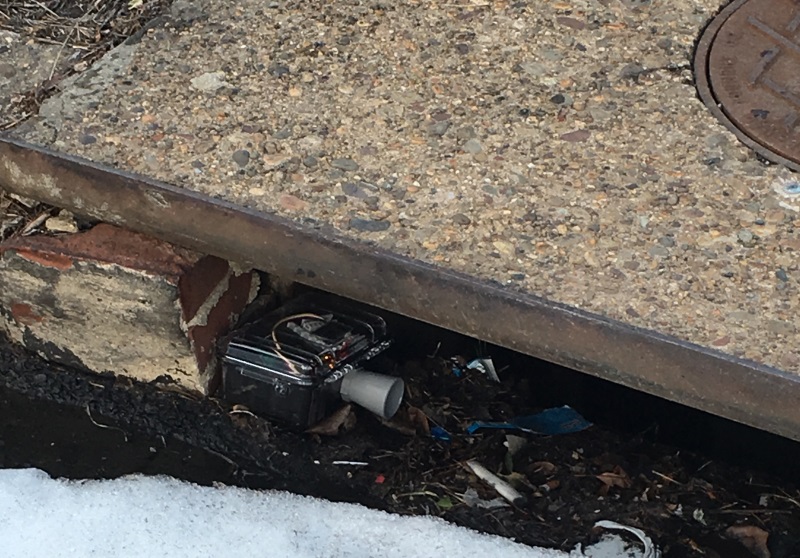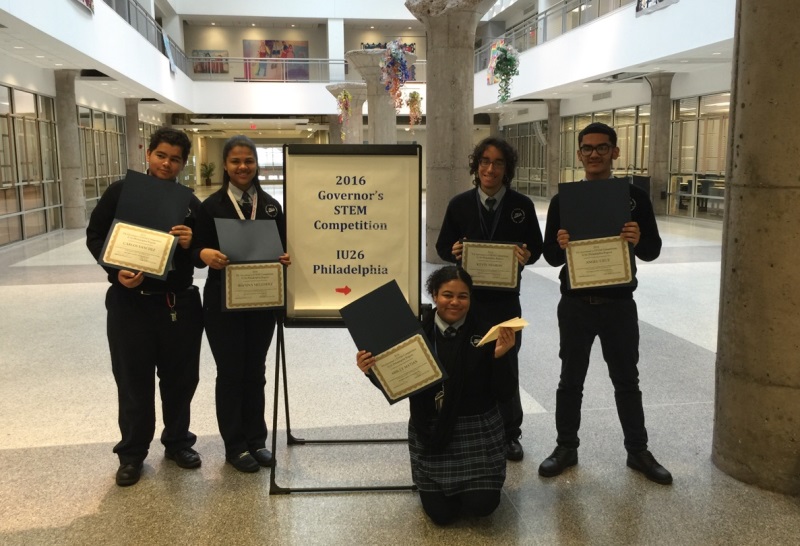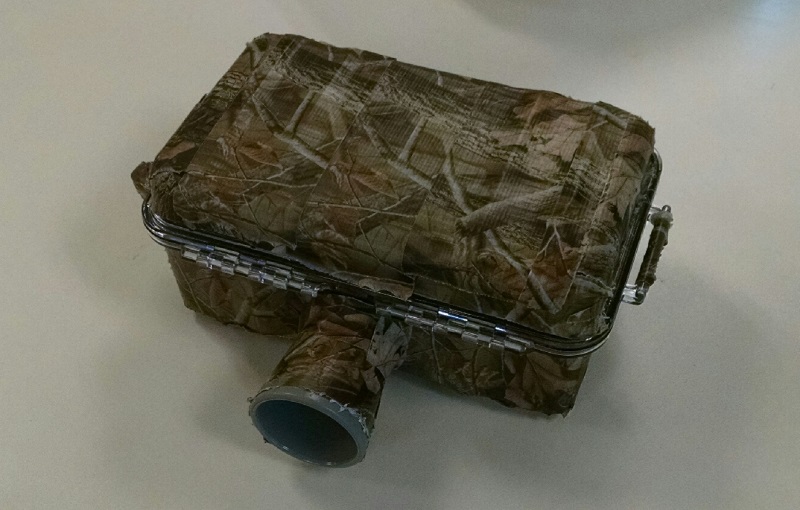SIM Goes To State
Last week, students from Philadelphia’s Mariana Bracetti Academy Charter School brought SIM (Sewer Inlet Monitor) to a statewide STEM competition in Lancaster where students from all over Pennsylvania came to present their inventions and innovations. The event was the culmination of months of work for the students in the STEM Challenge Club. The 10th graders identified a problem in their community (littering), conducted research and analysis on littering behavior and pathways (lots of trash ends up in sewer inlets), and came up with a solution: a waterproof sensor that detects sewer inlet blockages and reports it to the web and social media.
Partnering with Philadelphia Water, the STEM students devised SIM (above), an Arduino-based distance sensor that communicates via the 2G cellular network (yes, SIM has its own SIM card). When SIM senses an inlet blocked with trash, it sends data to the cloud storage site ThingSpeak and then begins a conversation on the messaging app Slack. The intent is to draw attention to littering behavior via social media and organized citizens’ action. Imagine if individuals adopted an inlet from a network of SIM devices shown on the map below:
Now imagine how much that would be appreciated by Philadelphia Water’s inlet cleaning crews, who removed more than 21 million pounds of debris from the city’s 79,000 sewer inlets in 2014. Not to mention the fish and other aquatic life in our rivers and streams, where the trash from sewer inlets can end up.
Alas, SIM did not end up winning the state competition—congratulations to the winning teams and all who participated. Our Philly students created something valuable to their community, demonstrated thoughtful work, and showed up ready to be challenged—this is what stewardship is all about. Below, an early SIM prototype being tested in the snow:
Expect to see a DIY guide for building your own SIM soon!

